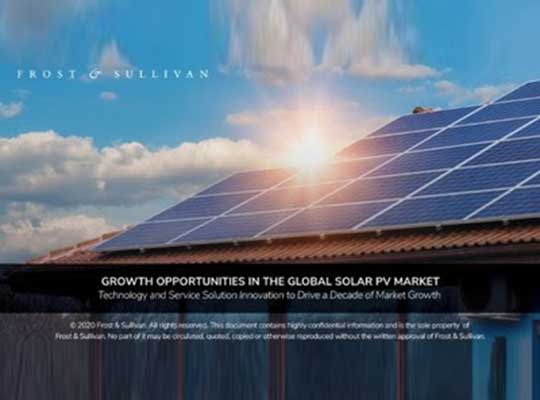The 2010s were a great decade for solar PV; technology costs tumbled and the drive to decarbonize the power sector encouraged governments and investors to back solar projects. During this period, Europe led the way, with growth accelerating in China and the US. The decade ahead promises more growth and continued investor opportunities. Frost & Sullivan forecasts a total of $1.5 billion to be invested over the decade, with half going to utility-scale projects and the rest going to commercial, industrial and residential photovoltaic (PV) systems. More homes and businesses will be prosumers, relying on self-generation for most of their needs, enabled through energy storage systems. This will drive the growth of virtual power plants to aggregate these resources and maintain the integrity of the electricity grid. To shed light on changing market dynamics expected for the 2020s, our Energy team has developed an analysis to help understand what’s to come for the global solar PV market.
Join Frost & Sullivan Industry Director Jonathan Robinson as he provides an outlook of the industry for the Growth Opportunity briefing, “Growth Opportunities in the Global Solar PV Market,” on December 3 at 11 a.m. EST.
For more information and to register for the webinar, please visit: http://frost.ly/4wk
This briefing will:
- Identify the geographic markets of the next key hotspots.
- Uncover the expected growth of utility, commercial, and residential PV sectors.
- Showcase new technology innovations predicted to improve solution offerings and drive future growth.
- Discuss investor business models that will sustain growth over the decade.
- Spotlight service propositions evolving to meet the needs of both aging assets and greenfield farms operating in harsh environmental conditions.
The event will also be recorded and available on-demand at http://frost.ly/1ti.













